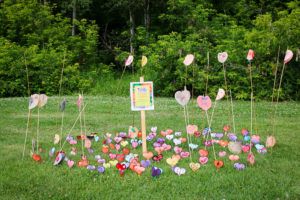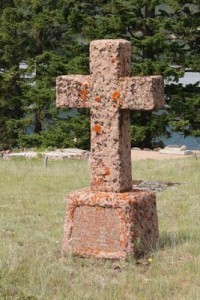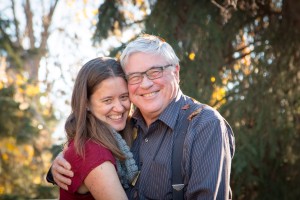
I have to be honest with you. I am weary from writing blogs about losing young people.Tragedy wears us all down. St. Albert Public Schools lost two young people in the past couple of weeks, in different ways, though equally tragic. My heart goes out to Zach and Luke’s families. The only thing I know to do with these feelings is to reach out to my community to offer support.
I think the current context of our pandemic is taking its toll on all of us. My private practice is busier than ever and filled with teens that are struggling with anxiety, depression, trauma and grief. Not everything is pandemic-related but even if it isn’t, our youth aren’t able to connect and cope in the ways that they normally would regardless of the causes of their stress.
Our youth are struggling and these recent losses in our community have potential to be the breaking point for some. Here is the best advice I can give you for talking to your young people about loss. It was adapted from one of my earlier posts a few years ago after young Darian Mar died in an accident.
1. Talk to your kids. If a tragedy happens in a community, then the whole community grieves. Regardless of the age of your child, they will likely be exposed to this event in one way or another if they are a part of this community. Even if your child does not know these families or children directly, the school, sports teams and anyone connected directly or indirectly are likely to have a reaction. It is not just the tragic loss of young lives that has happened. The loss of their lives will ripple through the lives of our youth in ways that are too soon to understand.
2. Talk to your kids about suicide but also about life. Specifically for the loss of young Luke, it is important that we talk openly and compassionately with our kids about what happened. Stigma, shame and silence only lead to more tragedy. I don’t know Luke, but I know that he struggled in a way that I never want another kid to struggle. I also know that he was so much more than how he died.
3.Ask questions and listen. What is your teen hearing at school, on the field or wherever else they hang out? What are your child’s thoughts on what happened? If you are listening, you will hear the misinformation and more importantly be able to hear their fears. You will be better able to dispel disinformation and reassure them about their fears if you keep your ears open and your mouth closed.
4. Let them know that they are safe. Kids and teens are just like adults. They need to feel safe. COVID makes this tricky, I know. While it is important not to lie, it is also important for them to have perspective.
5. Empower them. There are things people can do to keep themselves and those they love as safe as possible. This is the time to remind youth about looking out for each other. Reaching out to adults if they are worried about a friend. Give them the tools they need to take charge of their grief and emotions.
6. Be honest. Teens and children need to know where to go for the truth. If you don’t talk about it, or make up and gloss over details, your kids will know it. You don’t need to go into graphic detail, only answer what your child is asking. This goes for health issues and for suicide. We can’t protect our kids from the reality of tragedy but we can support them through it.
7. Watch your language. Young children are very concrete. They don’t understand flowery language like “passed on” or “went to sleep.” It often makes us feel better softening the words, but it can confuse and scare children. They need concrete language that they can understand such as “died” and “his body stopped working.” That doesn’t mean you have to leave your religious beliefs out but be cautious about being too vague.
With teens you can be more philosophical, their ability to handle abstract thinking is more mature. Make sure to explore their understandings and beliefs, not just present your own. Adolescents need to explore all sorts of ideas so that they can figure out who they are in the world. Use the opportunity to understand them better. It will help you both feel closer.
For those closer to the deaths look out for magical thinking. So often youth feel responsible for bad things happening. “What if I was there?”, “What if I didn’t do this?”, “He would still be here if I’d only…” This comes from part of brain development that hasn’t completed yet for youth. They often think in ways that are less global and more personal which can lead them to guilting themselves for things that couldn’t possibly be their fault. If you see this in your kid, listen first and then clarify the reality.
8. There is no right or wrong way to grieve. Some people will be affected more than others. Some kids/teens will need to talk, some kids/teens won’t. During these COVID times grieving is difficult. We don’t have the ability to get together to grieve. Find creative ways to support your kids, yourselves and the families that have lost their children. Give people the opportunity to talk, grieve and do whatever they need to do but don’t force them to do anything. One mistake parents make is to over-analyze, over-protect and over-process the events. Teens and children need to go back to their regular routine as soon as they are ready. If they are wanting to talk about other things, it is time to move on.
9. It takes time. Adolescents and children grieve over time, just like the rest of us. You may find that this doesn’t affect them now, but it may affect them later. These things come and go over time in unpredictable ways. We often give people a ton of support around the time of an incident but then fade out. There is no time frame or end date.
10. Support your kids in being supportive. If your child is a support for anyone involved help them to be present to their friends. They don’t have to do anything special, just play, hang out and listen. Often teens avoid situations that are intensely emotional. Your child may struggle to know what to say or do. Help them come up with a plan. Grieving families just need to know that people care, and that they can just be themselves. They don’t need to be treated with kid gloves, put on a pedestal, or avoided like they have some infectious disease. They have had a horrible thing happen in their life. They deserve to have people walk with them in their grief so they don’t have to do this alone.
11. Give yourself a break. Despite the “rules” I have laid out for you, there is no right way to do this. If you approach your youth with love and compassion, then they will learn from this experience about love and compassion. Trust your gut and your relationship with your child. Let that be the most influential guide.
Resources:
If you are struggling with mental health concerns, please consider phoning any of these agencies or organizations:
Suicide Distress Line: 780.482.4357
Kids Help Phone: 1.800.668.6868
Youth Emergency Shelter: 780.468.7070
Children/Youth Mental Health Crisis: 780.427.4491
Alberta Health Services, Mental Health Supports, Mental Health and Addictions counselling for adults and children: 780.342.1410
Zebra Child Protection Centre: 780.421.2385
Adult Mental Health Crisis: 780.424.2424










